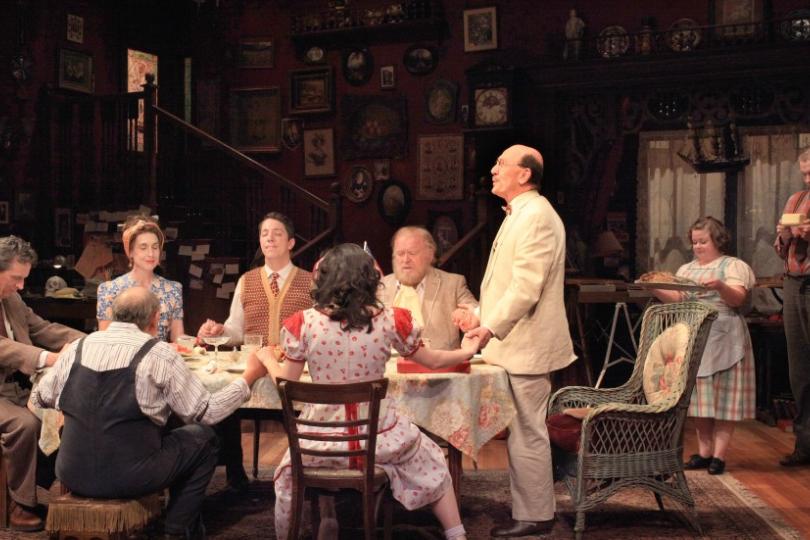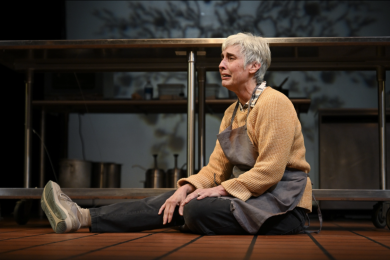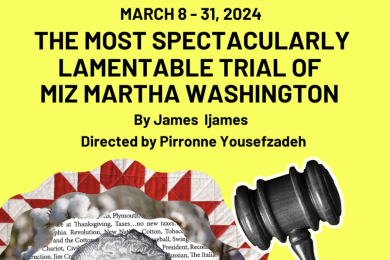Key to Happiness

Since the dawn of theater itself poor young lovers have been tragically forced apart due to the fact that their families are “just too different.” From Romeo and Juliet to the Addams Family Musical, love has time and time again conquered seemingly insurmountable odds such as age-old feuds, homophobia, and racial prejudice. But in Kaufman and Hart’s You Can’t Take it With You, we question whether or not even true love can overcome the ultimate challenge: the power of quirk!
Yes, while R and J are kept apart due to years of hate and animosity, the young couple of Alice and Tony have to grapple with the fact that Alice’s family is just too darn odd. This concept may have made more sense in the 30s when the play was written and normalcy was more highly valued in society, but in a world where geek is the new chic and cultural icons are Zooey Deschanel and Emma Stone (who basically exude quirky charm from every pore) the material at hand has become somewhat dated.
So with all of these challenges did the Jungle successfully resurrect this show from it’s ancient references, tired concept, and antiquated plot points to make it a relevant and thought-provoking piece of theater for the modern audience? Well… sort of. I mean, despite my biased millennial mind and perhaps overly-analytical thought process, the play was worth watching. The set is gorgeous, the costumes are appropriately period, the acting is the right blend of over-the-top yet still believable, and the technical elements are all very much on point.
From as objective a standpoint as I can manage, it is certainly praiseworthy, and I had a very good time in the audience. The show is light and charming and had me genuinely laughing throughout the two and a half hour performance. It’s simple, it’s sweet, and it makes you feel good. Maybe that’s all I should ask of it. There is certainly value in the type of entertainment that exists solely to take you out of your own life for a few hours, leaving you with a happy ending and a warm feeling. If that’s all it wanted to be, I would leave the review here. However, I think that both the play itself and this production in particular ask to be looked at a bit deeper.
Is there realism here?
In a show like this it is very easy to use the silly, over-the-top style as an excuse to escape any responsibility to reality. In my opinion, however, this play is written in such a way that challenges both the audience and the artists to fight that temptation. For example, though they are made light of, the show addresses some real issues like death, war, and the IRS. Director Gary Gisselman does not hide from this challenge either but instead runs with it by introducing elements of reality that break through the cartoonish facade. Having live animals on stage, for instance, or setting off real explosives rather than simply using light and sound effects serve as sobering reminders that as zany as things may get in this funny little house, these characters represent real people in a real world.
The show actively fights to keep you alert and thinking about what is said and it’s implications on real life. The grandfather’s final speech felt like a sermon for all the parents out there who told their children to study law and engineering instead of following their dreams to become artists. As an artist myself I certainly believe this message, but I have to admit not only have I heard it before but it is unrealistic in the world we live in. While once you might have been able to basically do nothing for 30 some odd years and still find a way to live with your family in a nice big house and eat hot dogs, today you’d more likely end up living in your parents basement surviving off of stale Cheetos.
Is this the key to happiness?
Yet there is still something about this particular batch of humans that catches us off guard: their ever-present optimism. Their optimism has such force that we don’t see the Sycamores confront any problem that can’t be laughed away with a sense of humor and a good attitude. The characters are certainly presented with real problems, but they are able to find positivity anyway. If the argument being made is that this is the secret to being happy, then it’s actually a hard notion to argue with.
So, after much overly-complicated analysis and existential quandary (which could have been easily avoided with the aid of a lazier director) I have come to the conclusion that while You Can’t Take it With You remains somewhat dated and often times overly idealistic, it is a story that is not devoid of value.
Yes, I believe that even today where tales of a bunch of straight white people with funny little habits are a dime a dozen, there is still something we can all learn from the Alice Sycamore and her crazy family. Though the original message of “Let your freak flag fly” might not be quite so ground-breaking anymore, their positivity and decision to be happy despite their circumstances is something that I think we all still need to learn.
So whether you're looking for an opportunity to contemplate the role optimism plays in the pursuit of happiness or you just want a well-done show that will provide a good laugh, You Can’t Take it With You down at the Jungle Theater is worth checking out.
In the mean time, stay quirky.




